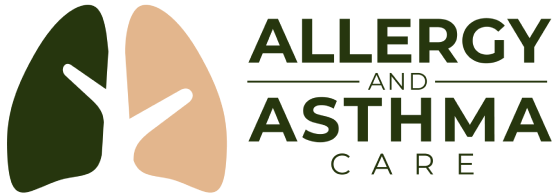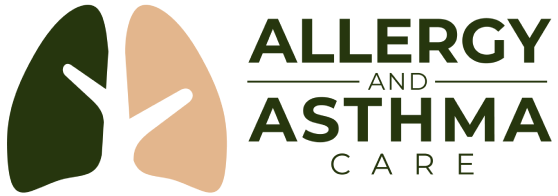Anaphylaxis is a severe allergic reaction that requires 911 to be called immediately. It may occur when you come into contact with something you are allergic to (called an allergen). Symptoms of the reaction usually start within seconds to an hour or two after contact with the allergen. In rare cases, symptoms may occur up to 4 hours later. Examples of substances that can cause some people to have a severe allergic reaction are foods, antibiotics and bee stings.
If you have a severe allergy to a substance, contact with that allergen causes your blood vessels to leak fluid into the area around them. As a result, your blood pressure may drop suddenly. Because there is less blood flow, less oxygen reaches your brain and other vital organs. Since these organs do not function properly with a lack of oxygen, your body goes into shock. In addition, your body responds to the allergen by releasing chemicals such as histamines, which cause swelling of the skin, a red rash, and severe itching.
Complications of anaphylaxis can include brain damage, kidney failure, and death. Anaphylaxis can be caused by an allergic reaction to:
- food or food additives
- insect stings and bites
- allergy shots
- ,medicines
- anesthetics
- vaccines
In rare cases, pollen, dust, perfume, chemicals, pet dander, or other substances in the air (including the smoke from burning poison ivy) among other things.
Some symptoms of a severe allergic reaction include:
- itchy, blotchy, raised rash called hives
- feeling dizzy or faint
- trouble breathing, including wheezing
- trouble swallowing
- tightness in the throat or chest
- hoarse voice
- swelling of the lips, tongue, throat or another part of the body
- nausea, vomiting, or diarrhea
- stomach cramps
- sense of impending doom
- loss of consciousness, even death.
At the Emergency Room your provider will ask you about contact with substances you may be allergic to. Then your provider will examine you for symptoms of shock by checking your:
- blood pressure
- pulse and heart rate
- breathing
- skin condition and color
- alertness and mental status.
Your allergist may recommend tests to determine the cause of your condition and its seriousness.
How is it treated?
Anaphylaxis requires emergency medical attention. If you think you or someone else is having a severe allergic reaction, call 911. If you have severe allergies, we may prescribe an EpiPen 2- pak for you to carry with you. The kit contains a ready to use syringe of epinephrine. If you start having a severe allergic reaction, you or someone else can give you a shot of this medicine to counteract the allergy symptoms until you get medical care. The Epi-Pen is not intended as the sole treatment of an allergic reaction. Rather, it “buys” time while you wait for emergency help. As soon as you start having symptoms of a serious allergic reaction, use the EpiPen to give yourself a shot of medicine to counteract the reaction and call 911. You need to have a second Epi-Pen available to be used if symptoms recur and medical help has not arrived. While you wait for help, lie down and raise your legs above the level of your chest to increase the blood flow to your heart and brain. If possible, remove the substance causing the reaction, such as the stinger if you were stung by a bee.
How long will the effects last?
The duration of the effects of anaphylaxis last depends on how quickly you get treatment. The symptoms may last from a few minutes to several hours. Without immediate medical treatment, the result can be death, but early treatment can help prevent serious complications.
If you are having an allergic reaction, do not delay getting help. Tell your healthcare provider about all past allergic reactions you have had. Avoid foods, chemicals, and other substances that have caused allergic reactions. For example, if shrimp causes an allergic reaction, don’t eat shellfish or any food that might contain shellfish. If you have drug or food allergies, always check labels before taking medicines or eating foods. This includes nonprescription medicines. Ask your healthcare provider to prescribe Epi-Pen twin pak for treating anaphylaxis. Make sure you review the instructions with your provider. Regularly check the expiration dates on the Epi-Pen. Do not keep the Epi-Pen in the car. The medicines are not stable in heat or cold and will not work well if they get too hot or cold.
Be prepared to give yourself a shot in case of an emergency. Teach family members and coworkers how to help you if you have a severe reaction. Think of the shot as something you can do to keep yourself alive long enough to get medical attention. Wear a bracelet or necklace that warns of your allergy and tells what to do in case of an emergency. Tell your family, friends, and co-workers what they should do if you have a severe allergic reaction. As soon as possible arrange for an appointment at Allergy and Asthma Care for full evaluation.
Immunotherapy may be a possible treatment for you. Immunotherapy gradually exposes your immune system to the toxic substance to make it less harmful to you. Immunotherapy may be very effective for insect allergies but not for food allergies. Tell all pharmacists, healthcare providers, and dentists who treat you about any allergies you have. Some medicines contain ingredients that may cause you to have an allergic reaction.
For more information, contact:
The Food Allergy & Anaphylaxis Network (FAAN)
Phone | (800) 929-4040
Web site | www.foodallergy.org
Learn what substance causes your reaction and avoid that substance. Ask your healthcare provider if desensitization treatments, such as allergy shots, might help you.


